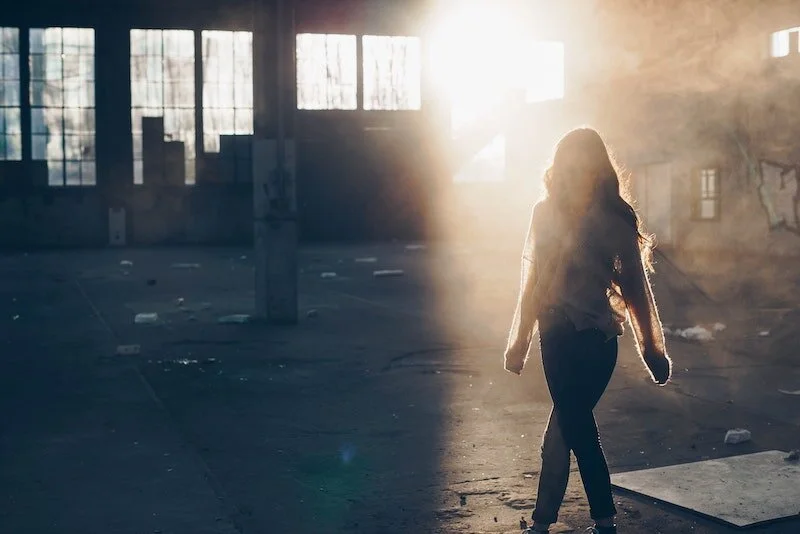Vacant property is always vulnerable to threat, but as we head into the colder months, there are new potential threats to prepare for. So before you settle down for a cozy winter—chimney swept, hot chocolate ready!—spare a thought for your vacant commercial property or closed up holiday home. Without adequate preparation, the cold, wet days and long dark nights could potentially cause thousands of pounds worth of damage.
If you’re unsure what preparations to make, we’ve got you covered. This series of articles will take you through four additional threats to your vacant property during winter, and how to avoid expensive damage.
First on our hit-list is mould, the scourge of private and commercial property owners alike!
Photo by Joel Filipe on Unsplash
Usually caused by moisture in the air coupled with inadequate ventilation, mould can grow under suitable conditions in as little as a couple of weeks. Properties that are closed long-term (like vacant commercial properties) need careful mould prevention action, but if you have a holiday home that you keep shut for the winter, the spread of mould should also be an urgent concern. Properties that are shuttered short-term after periodic habitation are particularly prone to mould, thanks to the presence of soft furnishings.
The proliferation of mould isn’t just unsightly but can pose a significant risk to the health of whoever occupies the property next, or anyone who enters the property to perform maintenance work or renovations while the building is vacant. Mould and mildew support aspergillus fungus, which is classified as a Category 1 health risk—ranking as high as asbestos! Left unchecked, mould can also seriously damage the interior of your property, requiring pricey renovations before the property can be used again.
How to Prevent the Growth of Mould in Your Vacant Property
Remove Textiles
If possible, remove as many textiles and soft furnishings from the property as you can—everything from couch cushions to carpets to linen and towels stored in cupboards. The porous nature of these materials makes them literally sponge-like—they absorb and hold moisture, creating ideal conditions for mould growth. Not only do you risk damage to those items but mould can quickly spread and cause significant damage to fixed features of the property, like floorboards, cupboards, skirting boards, carpets and walls.
For this reason, it is recommended that you remove curtains, but don’t risk leaving the windows uncovered, as this poses a security risk. Swap curtains for wooden or plastic blinds, and consider installing steel shutters or boarding up the windows completely if your property is going to be vacant long-term.
Promote Ventilation
Allowing adequate ventilation is a challenge when you’re closing up a property. Security will be a top priority, so you’re more likely to be looking for ways to seal the property off than allow airflow. But keep mould in mind as you go about securing your property, and you could save yourself expensive repairs down the line. To allow a little extra ventilation, here are a few measures you can take:
Unblock Air Bricks
Locate the air bricks present in the property and ensure that they are not blocked by furniture or other clutter. Air bricks provide essential ventilation, especially in properties with wooden floors, so a blocked air brick could cause unnecessary damp during winter.
Move Furniture Away from Walls
If you have to leave the property furnished, or it’s a commercial property and you need to store equipment or stock on the premises, take care to pull everything away from the walls for the period of closure. Allowing air to circulate freely reduces the chance of damp occurring. Remember to pull ovens and fridges away from the walls, too, as the narrow spaces behind them can become damp. Allowing air to circulate freely reduces the chance of damp occurring.
Open Cupboards
While it may seem counterintuitive when you’re closing up a property, it’s recommended that you open all the cupboards, including built-in storage, particularly if cupboards are built against external walls. Don’t forget the pantry and fridge (if you’re unplugging it) and that little cupboard under the stairs. Leaving cupboards open helps prevent damp air becoming trapped in closed spaces, which can accelerate mould growth.
Property Visits
It’s a good idea to make regular visits to the property to thoroughly air the place out, opening doors and windows for a few hours. This can be timed with other routine visits, like maintenance and security checks. Pick a dry day if you can, but boosting ventilation will still be useful on a damp day, especially if you blast the central heating or run a couple of plug-in radiators. If you’re unable to visit the property regularly, consider appointing a key-holder who can do so on your behalf.
Heat the Property
If you’re only planning to leave the property vacant for a season, it’s worth keeping your central heating on a timer, so it comes on periodically and maintains a reasonably warm, dry atmosphere. However, if the property is closed long-term, you will save money by turning off all utilities, ruling this out as an option. In this case, it’s essential to be vigilant about mould and implement the measures discussed above.
How Blue Door Property Guardians Can Help
While helpful, these methods for promoting airflow can only go so far in a vacant property—first prize is not leaving the property vacant at all during the winter months.
One way to do that is by having property guardians onsite to take care of the property and keep an eye on potential maintenance issues. Not only will your property remain in use through the winter, keeping mould at bay with regular heating and ventilation, but guardians will be able to spot mould if it occurs, enabling fast action to remedy the problem, preventing long-term damage.
In addition to solving your mould problems, guardian security saves you thousands of pounds on property rates and traditional security measures. No need for alarm systems, CCTV or manned guarding. You can also make a positive contribution to your local community by providing short-term accommodation for key workers and professionals.
Get in touch via our website or call 02078594213 today!



